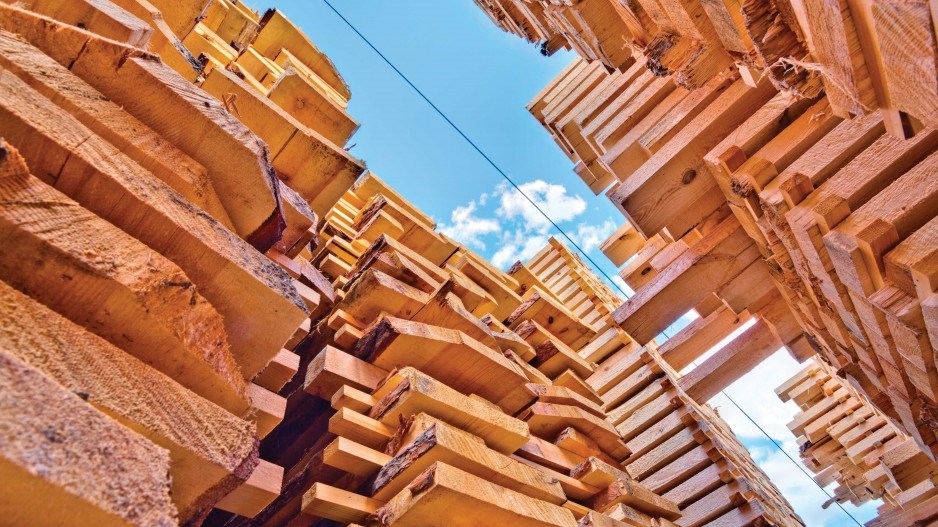The American lumber lobby filed a petition Friday with the United States government alleging Canadian lumber is being subsidized by provinces like B.C., and dumped at discount prices into the U.S. market.
The coalition's petition is expected to result in heavy enough penalties on Canadian lumber producers to force shift curtailments and mill closures. Mills in Canada can expect preliminary duties of up to 30% by April, said Kevin Mason, of ERA Forest Products Research.
"It puts a new spin on what Black Friday means," Mason said in an interview Friday. "They are doing this for a reason – to hammer the Canadians – and I am sure they will be very creative in coming up with justifications for duties around the 30% range.
"It's going to have to be around the 30% mark – given the Canadian dollar, wood costs, and conversion costs – to put enough of the Canadian industry under water to get the curtailments and closures needed to push U.S. lumber prices higher."
The U.S. Lumber Coalition alleges that provinces such as B.C. – which accounts for more than 50% of all lumber shipments to the U.S. – are selling timber to sawmills at below market value. They are seeking a countervailing duty by offset that alleged subsidy.
In addition, they say Canadian lumber is being sold in the U.S. at below fair market value, and are seeking an anti-dumping duty to counter that claim.
The Black Friday petition marks the beginning of the fifth lumber war in last 35 years between Canada and the United States. Canada has defeated most of the U.S. allegations before NAFTA panels and international trade bodies such as the World Trade Organization, but to get duties refunded, the federal government has ended up signing agreements that limit Canada's access to the U.S. lumber market. The last one expired Oct. 12, 2015.
Since the end of the last agreement, Statistics Canada data shows, Canadian shipments into the U.S. are up 18.4%, far below the 34% figure alleged by the U.S. industry. The U.S. numbers have already been questioned, even in the U.S., but regardless of whose number are most accurate, one fact stands out: B.C. sawmills have accounted for the lion's share of the increase.
Susan Yurkovich, president of the B.C. Lumber Trade Council, said in a statement Friday that the U.S. claims are based on unsubstantiated arguments.
"Similar claims were made in the prior round of trade litigation and were ultimately rejected by independent NAFTA panels which concluded that Canadian lumber was not subsidized and did not cause injury to the U.S. industry. With respect to this new action, we are fully prepared to defend our industry and are confident we will again prevail."
Softwood lumber is the most intractable and bitter trade dispute between the two countries and has cost producers billions of dollars and put thousands of workers out of their jobs. The last dispute, dubbed Softwood IV, lasted five years, during which the U.S. collected $5.3 billion in duties. Only $4 billion was returned to Canadian producers.
Mason said the purpose of the U.S. action is to force mill closures and shift curtailments in this country. He expects them to see that to begin this Spring, once the preliminary duties are in place.
The U.S. action does not derail talks currently taking place between Canada and the U.S. to reach a negotiated settlement, but it provides the Americans with greater leverage. The U.S. is seeking a hard cap on Canadian exports by limiting shipments to 22% of the U.S. lumber market. Canada initially opposed a cap, which would mean mean producers here would be issued quota. However, it has recently accepted the quota position and the two sides are now arguing over the number.




